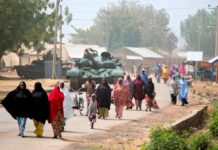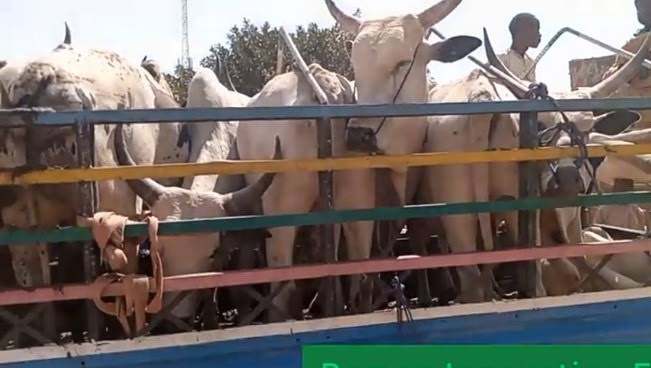President Mohamed Bazoum was toppled in a palace coup by the Nigerien military led by Abdourahamane Tchiani on July 26 and few days after, the Economic Community of West African States (ECOWAS) vowed to invade Niger if the junta failed to restore democratic order.
The regional bloc led by President Bola Tinubu also slammed various sanctions including border closure, cutting of electricity supply, among others. The African Union (AU) also followed suit with other sanctions.
But findings revealed that while millions of Nigeriens are passing through difficulties following the blockade, Nigerians have also started feeling the brunt of the sanctions, especially in the area of supply of proteins.
According to Statista, live cattle in Nigeria amounted to around 21.16 million heads as of 2021.
But a large chunk of the cattle and sheep being consumed in all parts of Nigeria comes from Niger, according to findings and interviews with those doing the business.
At least six states in Nigeria share a border with Niger. These include Sokoto, Kebbi, Katsina, Jigawa, Yobe and Borno.
Sequel to the continued border closure, businesses connecting the two countries through the land borders are suffering, ANN gathered.
Our correspondents in the border communities report that supplies to other states across North and South have reduced.
Supply reduced by 50% in Borno
In Maiduguri, the Borno State capital, Miyetti Allah Cattle Breeders Association of Nigeria (MACBAN) and butchers at the abattoir said flow of cows and other livestock into the state has reduced to less than fifty per cent.
MACBAN chairman, Alhaji Muhammad Karube, said the recent border closure aggravated their travails because since the beginning of Boko Haram insurgency, the herders could only use land border access into Nigeria to avoid incessant killings of their members by the insurgents.
“Now that the border has been closed, and our members could not use the bush path to bring in the cows, supply has gone down.”
When our correspondent visited the Maiduguri Abattoir at Gamboru Market, meat sellers said there was a massive reduction in the number of cows being slaughtered. One of them, Malam Ali Buba, said the number of cows that came into the abattoir kept reducing by the day.
“Before the Boko Haram insurgency, we used to slaughter 200 cows, but were reduced to a bit above 100 due to the activities of the insurgents.
“And now that the ECOWAS sanctioned Niger and closed its borders, we hardly slaughter 50 cows in a day because the supply stopped.
“A cow that we used to buy for N250, 000 is now between N300, 000 and N350, 000; that is why a kilo of meat is sold for N3,000 as against the N2, 500 being sold before,” he said.





